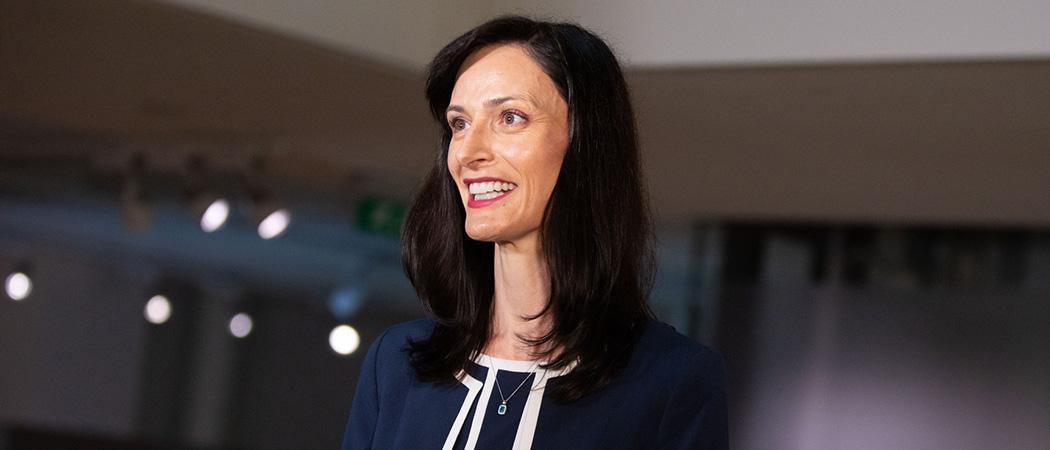Research Commissioner tells Science|Business conference there should be EU-level support for researchers navigating the precarious early stages of building an academic career

Mariya Gabriel, EU commissioner for innovation, research, culture, education and youth.
It is time to launch a new European partnership for young researchers to help tackle endemic job insecurity and boost central and eastern Europe’s chances of attracting and keeping talent, the European Commissioner for research Mariya Gabriel told a Science|Business conference in Prague today.
Acknowledging the difficulties that early-stage academics face in their careers, in terms of financial, personal and professional struggles, Gabriel said a new Europe-wide partnership could be one approach to dealing with these issues.
“Maybe I will be a little bit provocative, but it’s time to have a partnership at the European level for our young researchers, to ensure the sustainability of their careers,” she told the conference, which was held to discuss how to tackle the problem of brain drain and building research capacity in EU Widening countries.
While member states have a particularly important role to play in helping young researchers, Europe must also play its part. “I think it’s really time to scale up and to send a strong message to our researchers,” said Gabriel. “These partnerships will not be created overnight, but why not start thinking about this to provide the necessary conditions for our researchers. I’m thinking about mentoring, leadership programmes. We need to address these issues.”
There were moves to put in place career support for young researchers in the new European Research Area, launched in 2020, but more has to be done. “We need something concrete and that’s why I dared to share this idea. Why not, it is time to have a European partnership for young researchers,” Gabriel said.
A new partnership could help tackle loss of skills from central and eastern European countries to richer countries by making the conditions right for “brain circulation” rather than brain drain, said Gabriel.
“One of the main strategies should be to align [research and innovation] policies at national and European levels,” she said.
As yet, there are no details of the Commission’s plan to bring this idea to life.
Martin Andler, the president of the Initiative for Science in Europe (ISE), a group of research organisations, welcomed Gabriel’s calls for a new partnership.
“I think it’s a very important statement that she made,” he said. “We know that the situation of young researchers is very problematic: precarity, low salaries, unhealthy working conditions, you name it,” Andler told delegates.
“It is driving people away from careers in research, so the situation in central and eastern Europe is extremely important in its own right and is part of a wider problem.”
ISE said in a 2020 report that the insecurity of academic careers is “one of the most pressing issues of the research system.”
The complexity and time-consuming nature of funding mechanisms, research assessment methods and grant evaluations can induce bad practices and cause disruptions to promising young scientists’ careers. “Researchers spend increasingly long periods before obtaining a stable position: this has an impact not only on their work-life balance, but on the general attractiveness of academic careers,” the report said.
It also pointed to increasingly common, short-term, project-based funding schemes which, while boosting the number of early career researchers, also leads to job insecurity and “quantity over quality”.
Unkind working conditions
Meanwhile, a 2021 report by the Organisation for Economic Cooperation and Development (OECD) said the difficulties researchers face in pursuing an academic career means that it is “not surprising” that many talented young scientists are turning away from this option.
There is evidence that high levels of competition and lack of recognition have created unkind and aggressive working conditions,” OECD said.
“In addition, precarious working conditions and a lack of long term prospects have implications for these researchers’ personal lives, for instance in terms of family formation and access to housing.”
Gabriel pointed to the New European Innovation Agenda, adopted in July this year, as an example of how the EU is trying to solve the problem of the brain drain and bridge the research gap between the east and west.
As part of the agenda there is a plan to create “regional innovation valleys” to help countries channel €10 billion to interregional innovation projects, with the goal of connecting innovators in Europe, including in lagging regions.
The agenda also promises the creation of an innovation intern scheme for start-ups, an EU talent pool to help companies find non-EU talent and a women’s entrepreneurship and leadership scheme.





 A unique international forum for public research organisations and companies to connect their external engagement with strategic interests around their R&D system.
A unique international forum for public research organisations and companies to connect their external engagement with strategic interests around their R&D system.